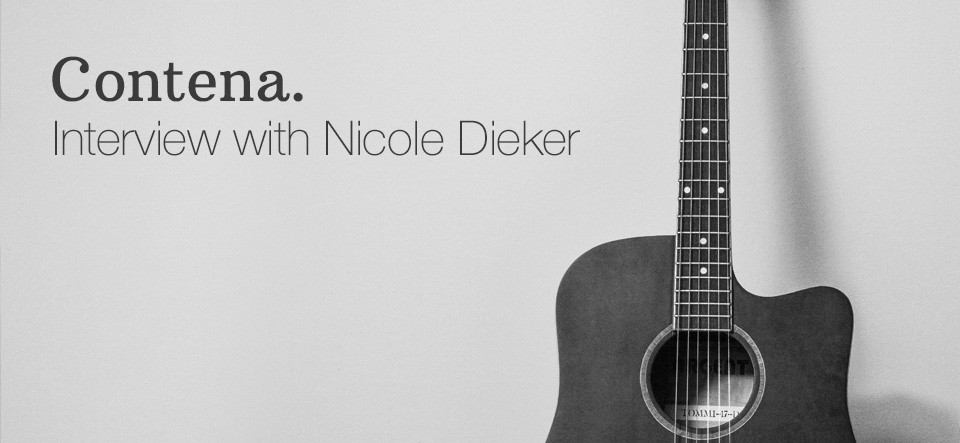Today I’m excited to share my recent interview with Nicole Dieker. Nicole has written for high profile sites like The Billfold, Yearbook Office, The Penny Hoarder, and Boing Boing. She also chronicles her earnings from writing each month on The Write Life – a blog that helps freelance writers create, connect and earn. Nicole is also in the process of writing a novel The Biographies of Ordinary People.
 Hi Nicole, great to have you. Let’s jump right into this… How did you first get into freelancing?
Hi Nicole, great to have you. Let’s jump right into this… How did you first get into freelancing?
I got into freelancing because I needed a way to make money while working as a performing musician. I knew that if I took a job that tied me to an office (or coffee shop or retail store), I wouldn’t be able to keep up my performance schedule. So I signed on to a content site called Crowdsource, and began writing short articles for around 3 cents a word.
From there—well, I’ve always been good at writing, and what I quickly realized was that I was really good at freelancing. I could turn around a post in an hour, and I could write four or five short posts a day. I was reliable, I hit my deadlines, and I could turn in clean copy. Plus, I started to love the work. It was very different from being a musician and begging bars to let me play to an uninterested audience!
So I very quickly began to ramp down the music work and ramp up the writing. I got better clients, I got contributor roles at publications like The Billfold (which is the closest a freelancer gets to a guaranteed monthly income) and I built a career.
Every month you share a breakdown of your income from freelancing on The Write Life. What motivated you to start doing that? What has the response been since you started sharing your writing income publicly?
I started sharing my freelancing income back when I was a full-time performing musician, as a way to show the disparity between the amount of work I was doing and the amount of money I was earning. There’s this idea that if you’re a musician who is playing a couple of shows a week, you must be earning a living, right? Not true. I’d make two hundred bucks, and that was it.
So I began posting This Week in Independent Musicianry on my Tumblr, sharing my income and struggles with my readers every week. That was in in 2012. It has since evolved into This Week in Freelancing, and I still post my freelancing income to Tumblr every week, in addition to doing the monthly roundup in The Write Life.
You write for high profile sites including The Billfold, Yearbook Office, The Freelancer, SparkLife, The Penny Hoarder, and Boing Boing. How do you find balance with all of these demanding clients?
Ha ha ha ha, “demanding” is your word, not mine! I love my clients.
I’ll tell you honestly, it took a while to find balance. For a while, it was a question about whether I’d have enough work to earn the money I needed, but there was a tipping point around the beginning of this year where I started to get a lot of new gigs. Most of them were clients who reached out to me and asked if I would write for them, which is a great place to be in as a freelancer.
Anyway, I started saying yes to a lot of stuff, and got myself in a position where I was putting in 12-hour days. That is not sustainable in the long term, so I started figuring out how many pieces I could actually complete each week, and how I could configure my client work so I was writing the majority of my pieces for my best clients. (These aren’t necessarily my best-paying clients, although most of them pay at the top of my range. A client that is easy to work with and puts my writing in front of a big audience is equally valuable.)
So I found balance by saying no to things, and now I’ve gotten my workweek down to around 40 hours. But I was only able to say no to stuff by first doing the work of saying all that yes. If you don’t have enough paying work, and if you don’t have good relationships with your clients, you won’t have the leverage you need to say no when you need to.
What does an average day look like? Are there any tricks you use to increase your writing productivity?
I tend to work from about 8:30 a.m. to 6:30 p.m., give or take, with an hour to 90-minute break in the middle. There’s usually one night a week that I keep as “overflow night,” to pound through everything I couldn’t finish during the day.
As for productivity: I am the child of two classically-trained musicians. This means I learned, from a very young age, that you sit down at your instrument every day and you practice every day. So finding the motivation to write, even when it is “hard” or “boring,” has never been much of an issue for me. Some of it is like playing music, and some of it is like practicing scales.
Also, if I don’t write, I don’t eat. I have money in a savings account, but I have no real other source of income at this point. So that encourages me to be very productive!
Are you writing full time? If so, how and when did you make the decision and transition?
I was never in the position where I had to choose to quit my job and pursue freelance writing. I was in the position where I had no job, and I wasn’t earning enough from music performance, and I had to figure out how to earn money. That’s how I started freelancing, and I built it up to a full time gig within maybe six months. (Keep in mind that at that time I was doing low-paid content work for 3 cents a word. But I was doing it 8+ hours a day, Monday through Friday.)
I am very glad that I am able to do this full-time. If I hadn’t started working for Crowdsource, I might have gone back to temping, or working retail. But Crowdsource took me on, and I was able to earn a liveable wage with them, and from there I was able to build a career.
Is there anything you regret or would have done differently early on?
I’ll frame this as a piece of advice: start looking for a new client as soon as you start having problems with a current one.
It’s like any other job; if you don’t have a good relationship with your boss, it’s time to think about working somewhere else. But don’t burn bridges, either.
Find your new client, and say goodbye to the problem one in a way that maintains the relationship and encourages that client to refer you to other clients in the future.
How do you think freelancing full time has changed your life the most?
This is the first career I’ve had where I’ve been paid for my ideas. Previously, I was paid for my ability to answer a phone, or my ability to complete administrative work. (Or, in many cases, not paid for being a musician.)
When you get paid for being you, it changes everything. It makes your work more valuable. It gets you a little closer to indispensable. People want to work with you just because you’re you, and they’re willing to pay for that.
Do you still write for fun? Are you working on any side projects?
I hate this question. When I go on dates with people and they ask “okay, but do you still write for fun,” there is no second date. Nearly all of my writing is fun. I love my entire job, and I dislike the implication that freelancing is somehow “less fun” than the fiction writing I must be doing “on the side.”
I get paid to write fiction for sites like Yearbook Office. That means it isn’t a side project; it is an integral part of my freelance portfolio.
Right now I am writing a novel titled The Biographies of Ordinary People (my second novel) and funding the process through Patreon.
I hope you take the time to check out my novel, because I’ve gotten a lot of great response from my readers.
I’m also still writing and performing music, by the way. But now I can be very selective about the gigs I take—no more terrible bars!
Lastly—what is one small thing that an aspiring writer can do today to improve their freelancing business?
When I started publishing my income online, it incentivized me to earn more money every week, because I wanted to share a narrative of progress and success. The knowledge that I’d have to tell everyone, every week, how I did helped push me to send out that extra pitch, take on that extra piece, do anything I could to get that income number higher.
What gets measured gets managed, as the saying goes. So start measuring what you want to change in your career, and figure out what you need to do to improve that number.











test